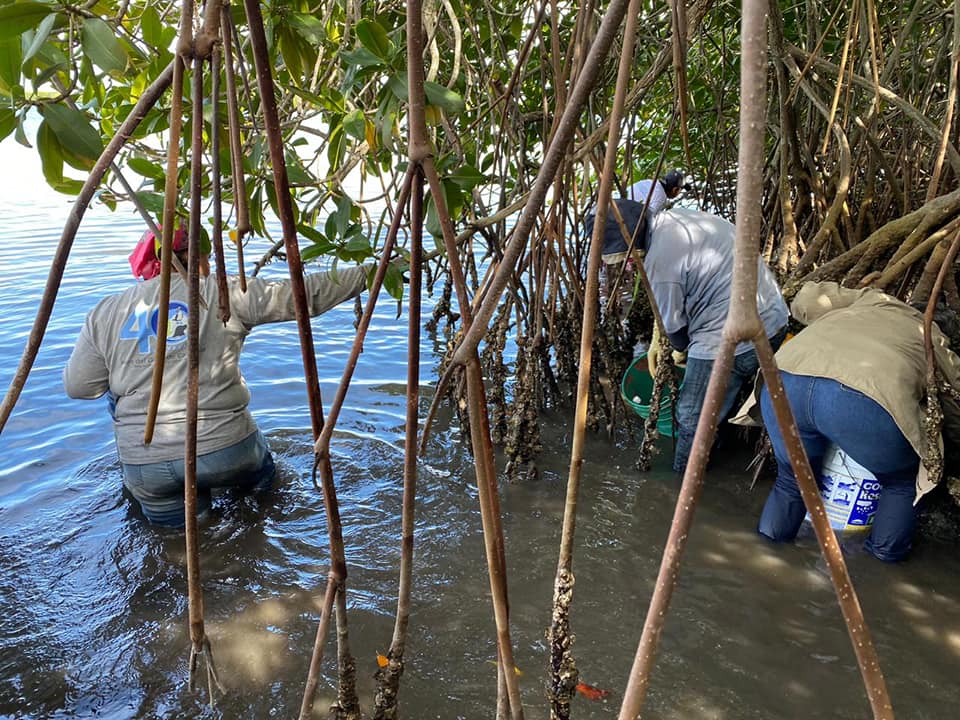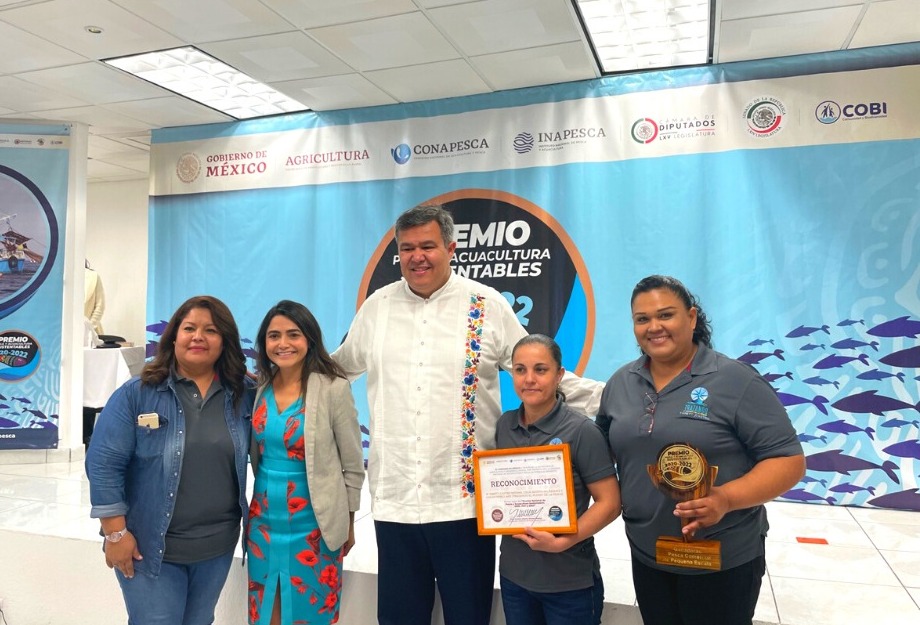Yanett Miranda Castro, Celia Acosta Velázquez y Miriam Pérez Aropresident and members of the cooperative Almejeras de Santa Cruz, from AltataNavolato; they received the Sustainable Fisheries and Aquaculture Award 2020-2022, category "Small Scale Commercial Fishing".The federal government provides through the Secretariat of Agriculture and Rural Development and the National Commission of Aquaculture and Fisheries (Conapesca).
The award was presented at Mazatlanin recognition of the effort that Yanett and a group of fisherwomen have made for a sustainable fishing. Yanett's leadership, who grew up among the pangas, atarrayas and her father's passion for this activity, began, she explains, in the face of the growing "sea of backwardness" facing the sector.
"I was born in a time of abundance. Our bay of Altata produced an average of 30 tons of clams a day. All the families benefited from those resources that suddenly ran out," he recalls.
She recalls that, as a child, she used to see her father catch up to 300 kilos of shrimp a day, while today, 30 kilos is an achievement. Back then, the season lasted up to seven months, from August to March. The situation for the clam is even worse.
"Sometimes there's not even enough for a snack," she says.
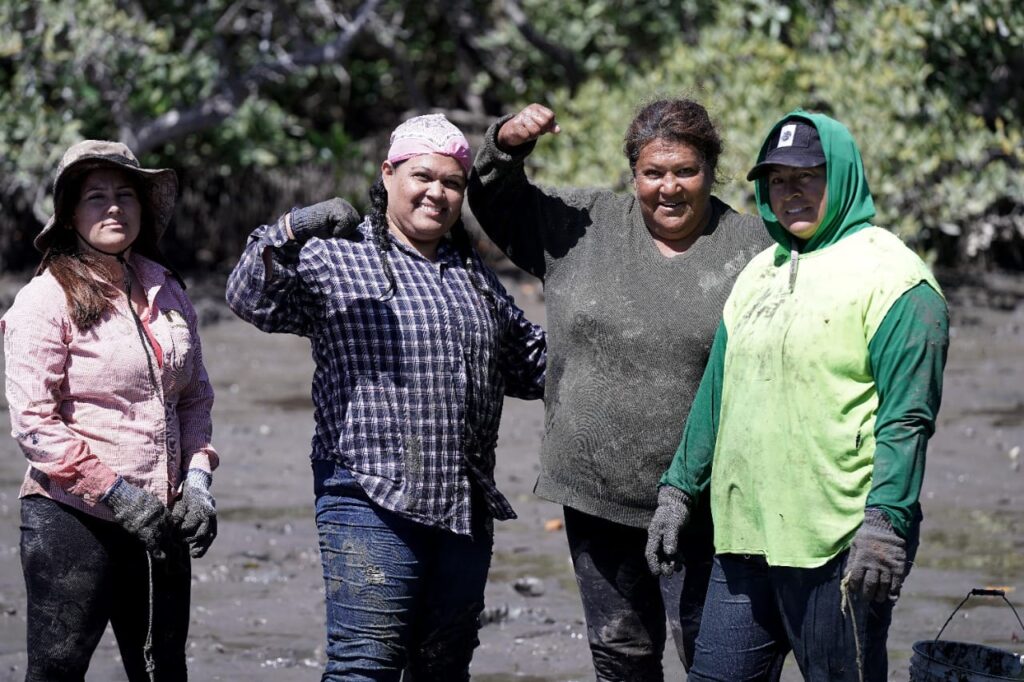
"Learning to work sustainably is a necessity."
Yanett acknowledges that this is due to the fact that fishermen did not have the culture to carry out the activity correctly. They would go out to sea and come back with product of all sizes.
"We thought we would never run out of product. We were born in a sea where we were taught that we could fish for anything, regardless of size, measure, whether it was floured or not; today we know that learning to work in a sustainable way is a must for the sector, if we want to move forward and continue with the culture of fishing".
We recommend: Volunteers collect 1.5 tons of garbage on Altata beaches
Despite the scenario, Yanett clung to the activity. She and her family saw that, as the product became scarce, more and more of her colleagues left in search of new seas or the countryside; others went to other parts of the country, to the United States or Canada to work in something completely different, but that would put bread on the table.
"It is very sad that our people have to leave, even though they love the sea, they love what they do, because they cannot make a decent living from fishing. Many others are still here giving their all to continue rescuing our way of life".
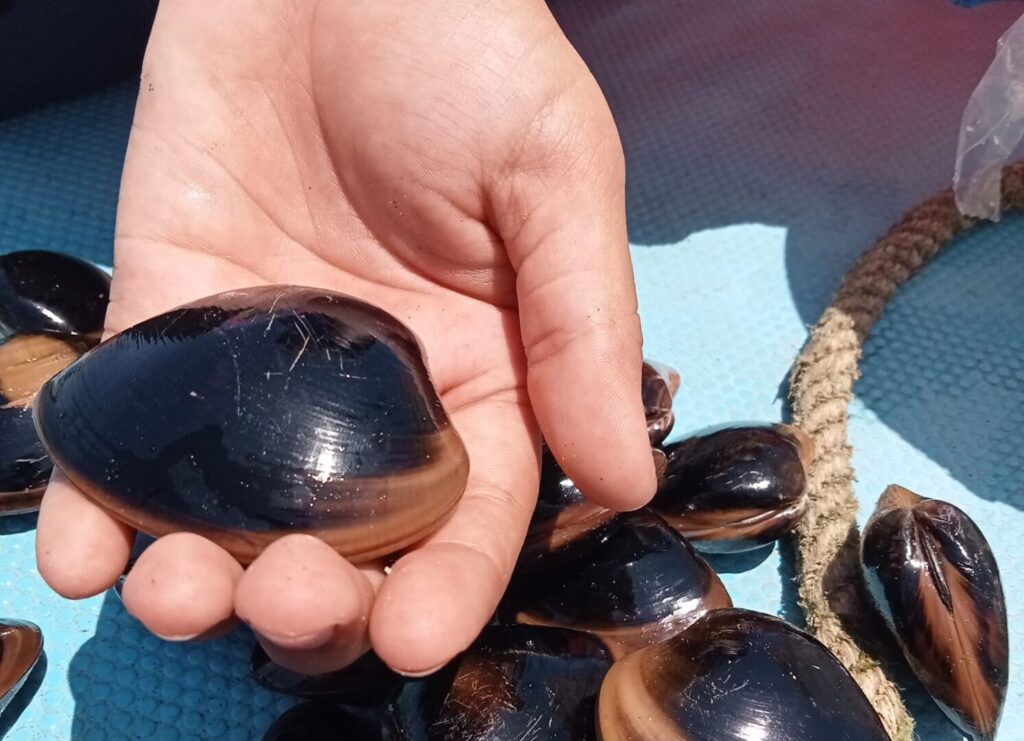
Organized women fisherwomen
In 2017, information reached the fisherwomen of that region that would change their vision about fishing and awaken in them a light of hope for the future. They took part in the Skills Strengthening by the Mexican Environmental Defense Fund (EDF). It is a civil organization that empowers fishermen and fisherwomen for a more sustainable activity.
In doing so, they discovered that as women of the sea they have the same rights to participate and be informed about their activity. Thus they formalized themselves as Almejeras de Santa Cruzand also emerged the Aguamitas Cooperativethe Lobas del Manglar, The Banas Guerrerasin Bahía Santa María; all of them clamshells.
They began by learning and knowing their rights to have cooperatives and apply for fishing permits. Since then, they have been working to exercise women's right to the sea.
Many of the women, she says, participate in the fishing sector, without getting into the water, but in an effective way, making it possible: making nets, lunch for the fishermen, heading the product or packaging it, giving it added value, or putting a prepared product on the consumers' table; these activities, she says, have never been valued or made visible. Not even a real number is known of how many are involved in the coastal fishing sector.
"We have always worked in the sector, but never organized, we didn't even know, how were we going to push it?".
"Now we are also researchers."
Yanett's leadership has escalated across the country. She is currently president of the National Network of Women of the Seawhere he has promoted the gender perspective so that the work of women in fishing is known and valued.
"I think it is fundamental that we grow as fishing families to strengthen the sector, but also resolve what we have been carrying for generations to move forward because, the fact that we have a sea of opportunities, but there are more and more poorer fishing families, is a situation that should not exist."
With support and guidance from EDF y Pronatura Noroestethree years ago, the fisherwomen set up a fishing refuge in front of Altata Bay to monitor the growth of the fish. chocolate clamThis will allow the recovery of the species.
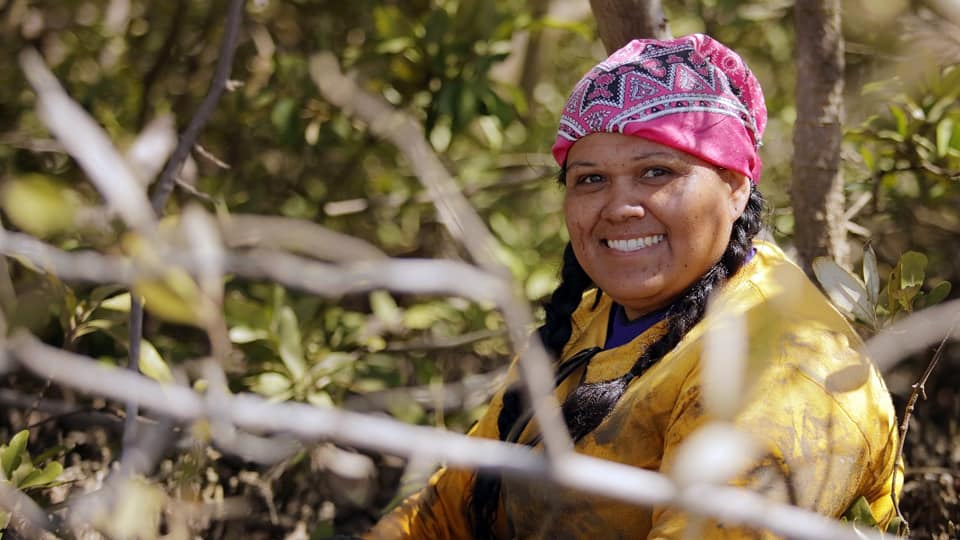
This area is the only one in the country registered in the Fisher ProgressThis puts it on the world map, which means that it works in a sustainable way, hand in hand with authorities and fishermen for a future for fishing.
"We had been 10 years without chocolate clam and now, through a whole process: a management committee, fishery improvement, no-fishing refuge zone; we now have chocolate clam all over the bay".
Through this project, the clam farms have a biological monitoring plan where they work hand in hand with the authorities, Conapesca e Inapesca. The objective is that the next generations will have a way of working and managing the fishing resource, with a culture of environmental care and beach cleanliness.
"The importance of working sustainably brings economic benefits in the ocean. Our main concern is that there continues to be something to fish for," says Yanett.
